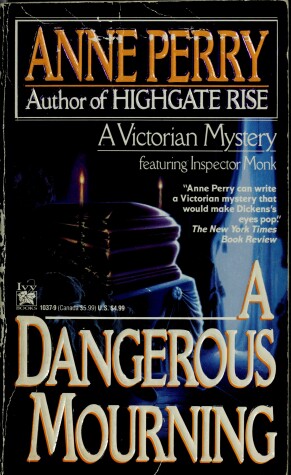Reviewed by ibeforem on
But there’s more to this book than the mystery of Monk. Hester continues to excel at being the female lead, and I find their relationship very interesting. Is it strictly platonic, or are their hints of romantic feelings hiding beneath the ire they tend to display? Hester is obviously in search of a life that is larger than the one society would like to dictate, and Monk appears to be her ticket to that life.
As for the murder mystery, it swims in the stink of class bigotry. I think Perry did a good job illustrating the feelings of both the aristocracy and the servant classes.
The one issue I had with this book had more to do with how I was reading it than anything else. I was reading it on my phone, and it was my “emergency” read, so I only got to it once or twice a week. Because of that, I had a hard time remembering who was who in the Moidore family. Though in my defense, there were a lot of them. This also wasn’t a quick moving plot. There’s really not a lot of action.
Bottom line, if you enjoy a period mystery, it’s hard to go wrong with Anne Perry.
Reading updates
- Started reading
- 29 December, 2011: Finished reading
- 29 December, 2011: Reviewed
